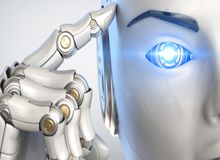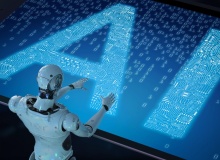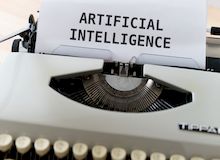

.jpg)
How urgent the problems in our world and how old-fashioned the proposed solutions at the World Economic Forum in Davos. Loss of trust and loss of faith may go hand in hand.
.jpg)
From the UN's views on LGBT issues and religious freedom to evangelical movements in Europe tackling issues of the day. These are the ten stories you've read and shared the most this year.

“This scepticism should encourage churches to evaluate Artificial Intelligence carefully and responsibly”, conclude the authors of a survey in the US.
.jpg)
Many of Trans World Radio’s national partners met in Central Europe to consider the benefits of using Artificial Intelligence in Christian media ministry.
.jpg)
Large-scale AI systems consume enormous amounts of energy. Yet the material details of those costs remain vague in the social imagination.

The core issue may not be AI itself, but rather the prevailing practices and thought patterns. An article by Shuk Ling Chan.
.png)
“Our goal with technology should be to have more healthy humans, not to create some kind of super humans”, says the bioethics expert in an interview with Evangelical Focus.
Cropped.jpg)
Chat GPT-4, the risks of mass surveillance, singularity, the future of workplaces… Charlie Catlett, computer scientist researching the internet since the 1980s, analyses the exponential growth of Artificial Intelligence.
Cropped(1).png)
What are the challenges posed by the exponential evolution of AI in recent months, and should we be optimistic about the future? Computer scientist Charlie Catlett, a researcher of the internet since the early days in the 1990s, answers key questions.
.jpg)
Around 300 people joined an experimental 45-minute programme of the German Evangelical Church. 98% was created and performed by machines.

Meta trains its new Massively Multilingual Speech AI models with data from Bible recordings and makes them available on open access software.

AI is a fascinating tool that Christians may help develop in ways that glorify God, despite the potential for sinful distortions. An article by Abed Zien El Dien.
Three experts react to a widely distributed open letter calling to “immediately pause for at least 6 months the training of Artificial Intelligence systems” such as the popular GPT-4.
.jpg)
Around 280 professionals, students, and church leaders attended the once-in-a-decade conference. Dr John Wyatt was the main speaker of a programme that included 15 other thematic seminaries.
.png)
John Wyatt in an in-depth interview about Artificial Intelligence, abortion, euthanasia, and creation care: “There is an urgent need for us Christians to build a bridge between the world of the historic biblical faith and these very new and challenging issues”.
.png)
Professor John Wyatt gives a perspective on key bioethical issues of our time.
.png)
Professor John Wyatt gives a perspective as a Christian bioethics experts on issues that are provoking a huge socio-political debate in Europe. An interview ahead of his participation in the "Jornadas de Bioética" conference in Spain, December 2022.

Eleven years later, Spanish evangelicals will gather for a new Bioethics congress. Non-Christians are welcome in a programme that will address issues such as euthanasia, artificial intelligence, and creation care.
In the Spanish city of Zaragoza, national and international speakers addressed the trends in Europe around the question of human identity.

Churches can become centres of excellence for the creative use of AI technology to support everyone, including disabled people, both in church and elsewhere.

A survey concludes that 9 in 10 attend their church’s worship service every week. 63% of respondents do volunteer work and 40% identify with right-wing parties.
.jpg)
The technology-evangelists’ goal is to provide products and services that are so compelling, easy to access, and intuitive to use that we can’t help but adopt them.

Europe and other regions in the world are trying to control the power of large companies such as Amazon, Google or Alibaba. But there is no agreement about what the rules should be, says expert Jonathan Ebsworth.

Large-scale use of algorithms has the potential to cause severe harm to individuals and communities. Lessons from the 2020 public examination results fiasco in the UK.

A group of experts on AI of the European Evangelical Alliance respond to the EU consultation on its White Paper on Artificial Intelligence.

Las opiniones vertidas por nuestros colaboradores se realizan a nivel personal, pudiendo coincidir o no con la postura de la dirección de Protestante Digital.